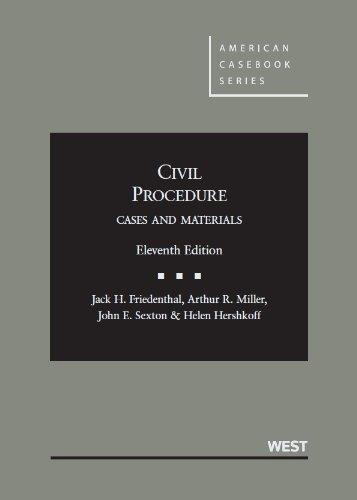8. If a state court can hear a case arising under federal law, must it do so?
Question:
8. If a state court can hear a case arising under federal law, must it do so? In HOWLETT v. ROSE, 496 U.S. 356, 110 S.Ct. 2430, 110 L.Ed.2d 332 (1990), a unanimous Supreme Court held that the Florida court could not invoke sovereign immunity as a ground for declining to hear a federal civil rights claim under 42 U.S.C. § 1983, when that defense would not bar the court from hearing an analogous state-law claim. The Court explained that the state’s defense in this context “raise[d] the concern that the state court may be evading federal law and discriminating against federal causes of action”:
A state policy that permits actions against state agencies for the failure of their officials to adequately police a parking lot and for the negligence of such officers in arresting a person on a roadside, but yet declines jurisdiction over federal actions for constitutional violations by the same persons can be based only on the rationale that such persons should not be liable for § 1983 violations in the courts of the State. That reason, whether presented in terms of direct disagreement with substantive federal266law or simple refusal to take cognizance of the federal cause of action, flatly violates the Supremacy Clause.
Step by Step Answer:

Civil Procedure Cases And Materials
ISBN: 9780314280169
11th Edition
Authors: Jack Friedenthal, Arthur Miller, John Sexton, Helen Hershkoff






